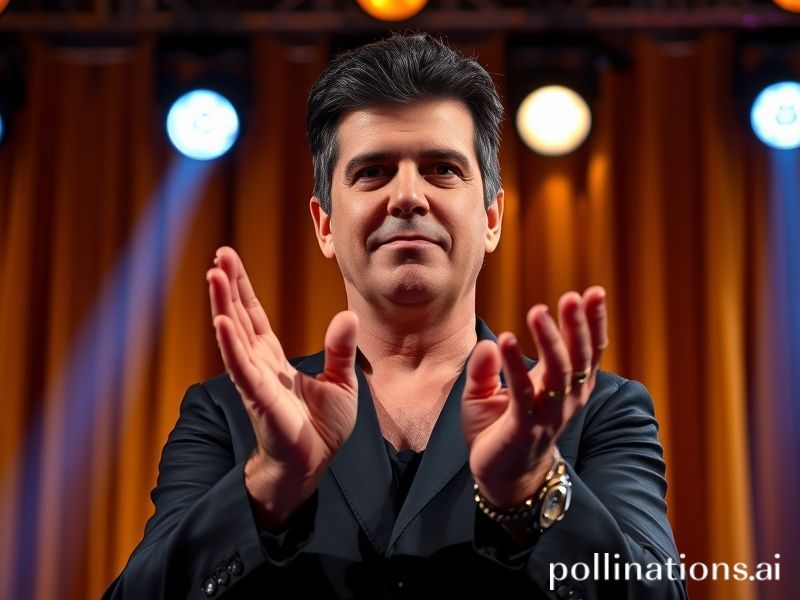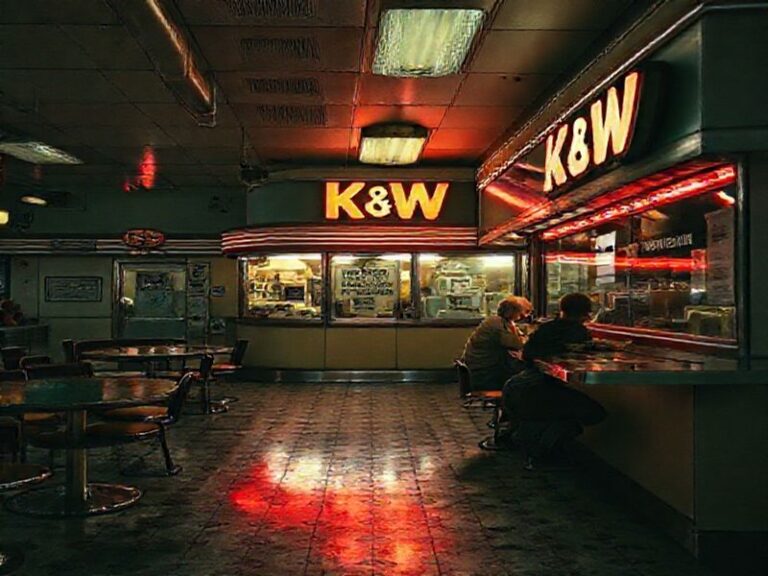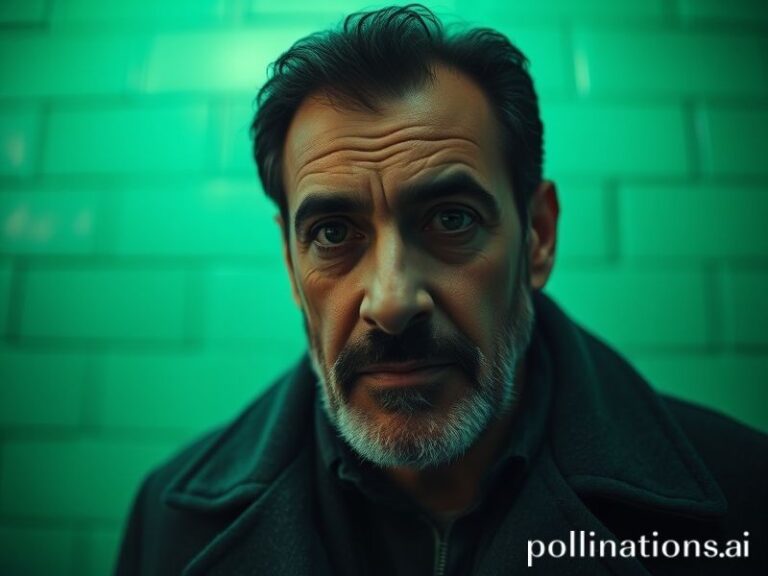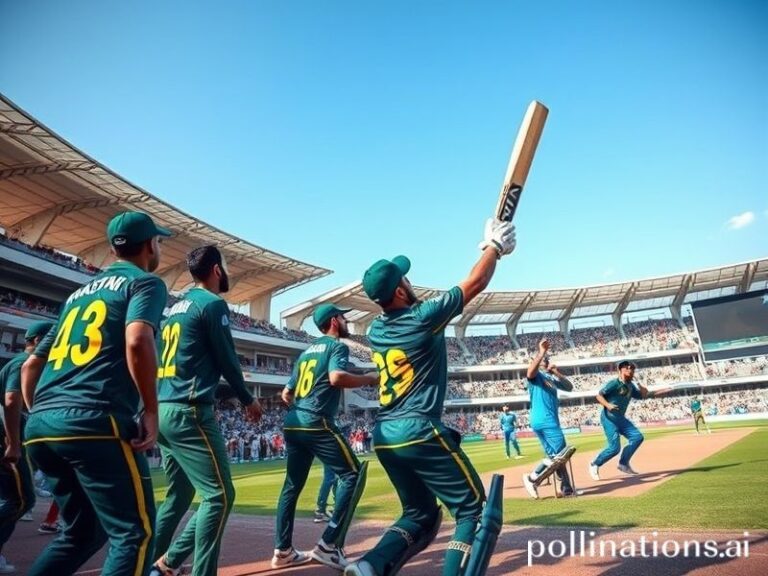Simon Cowell Claps and the World Holds Its Breath: A Global Study in Manufactured Authenticity
SIMON COWELL CLAPPING: A GLOBAL THUNDERCLAP IN THE AGE OF PERFORMATIVE APPROVAL
By our Special Correspondent for Applause Geopolitics
Geneva—In a week when the UN Security Council couldn’t agree on lunch, let alone peace, the single loudest diplomatic signal came from a man in a too-tight black T-shirt slapping his own palms together on a soundstage in Burbank. When Simon Cowell—architect of televised heartbreak, sultan of the snide “It’s a no from me”—stood up and clapped, the earth’s tectonic plates appeared to shrug in collective disbelief. Iceland’s seismologists briefly registered the tremor as “minor volcanic indigestion.” They were half right.
Cowell’s clap, delivered after a 13-year-old Ukrainian refugee sang Edith Piaf in flawless French, has already been dissected by pundits on five continents. In Kyiv, the clip trended above air-raid alerts. In Beijing, state media ran it with the chyron “Western Emotions Reach Peak Absurdity.” Meanwhile, in Buenos Aires, a cryptocurrency collective minted an NFT of the clap and sold fractional shares to finance a new fintech startup that promises to disrupt gratitude itself. Nothing says “human progress” quite like monetized sincerity.
The applause was, of course, captured from seven angles in 8K, then auto-tuned, color-corrected, and uploaded to seventeen platforms before the contestant’s echo died. Within hours, the gesture had metastasized into 42 distinct memes: Cowell as the Buddha granting enlightenment, Cowell as a malfunctioning wind-up toy, Cowell as the final seal on the apocalypse. A French philosophy professor declared the clap “the last gasp of late-capitalist catharsis,” then retired to a vineyard to write a monograph no one will read.
From Lagos to La Paz, the clip played on cracked phone screens in night buses and refugee tents, an accidental Rorschach test for a planet starved of unironic joy. In Nairobi’s Kibera slum, kids reenacted the scene using bottle-cap applause; in Reykjavik, a death-metal band sampled the clap for a track titled “Ovation Extinction Event.” Somewhere in the metaverse, an avatar wearing Gucci loafers offered to sell me the “original” clap sound as an MP3 for 0.03 Ethereum. I asked if it came with existential dread. “Premium package only,” it replied.
Diplomats, ever alert to soft-power tremors, sprang into action. The British Foreign Office issued a 400-word statement praising “the UK’s creative industries’ unmatched capacity for emotional diplomacy.” The Kremlin countered with footage of Putin clapping at a tractor factory, timing the release to coincide with the Eurovision semi-finals—subtle as a polonium latte. Even the Vatican weighed in; the Pope tweeted a GIF of doves being released, which everyone interpreted as “Nice try, Simon, but I still own the franchise on symbolic gestures.”
Economists, never ones to miss a beat—or a beat drop—estimate the clap generated $17 million in ad impressions before the aftershave commercial that followed. Shares in the parent media conglomerate spiked 2.3 percent, proving once again that the global economy now runs on micro-doses of curated empathy. Goldman Sachs is reportedly structuring a derivative tied to future Cowell claps, with risk tranches color-coded from “warm” to “tepid.” Moodys has assigned a preliminary rating of Triple-A—for “Artificial Authenticity.”
Yet beneath the absurdity lies a darker chord. In a world where wildfires have seasons and democracy feels like an opt-in beta test, we have grown suspicious of unearned hope. Cowell’s clap disturbs us precisely because it is unscripted—an involuntary spasm from a man who has weaponized disappointment for two decades. It is the geopolitical equivalent of finding out Darth Vader volunteers at an animal shelter: unsettling, suspicious, and, worst of all, moving. If even Simon can be ambushed by sincerity, what fresh chaos awaits the rest of us?
And so the planet keeps spinning, albeit slightly off-balance, soundtracked by 7.9 billion ringtones playing that one, tiny clap on loop. Somewhere tonight another dictator will watch it before bedtime, wondering if applause is still the best metric for approval. Somewhere else, a child will mimic it, unaware that the sound has already been copyrighted. And in a dimly lit editing suite, a producer will isolate the waveform, ready to auto-tune the next moment of manufactured grace.
The clap has been uploaded, dissected, monetized, and memeified. All that remains is for us to decide whether we join in—or sit this round out, hands firmly in pockets, guarding our last shred of quiet dignity. Either way, the echo is already gone, circling the globe like a low-orbit satellite broadcasting the news that, for 2.4 seconds, we were all briefly on the same beat.
And that, dear reader, may be the scariest part.







